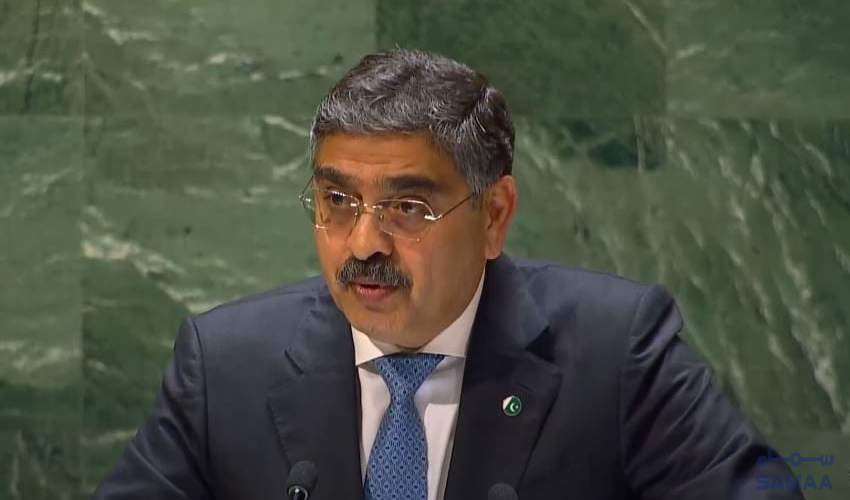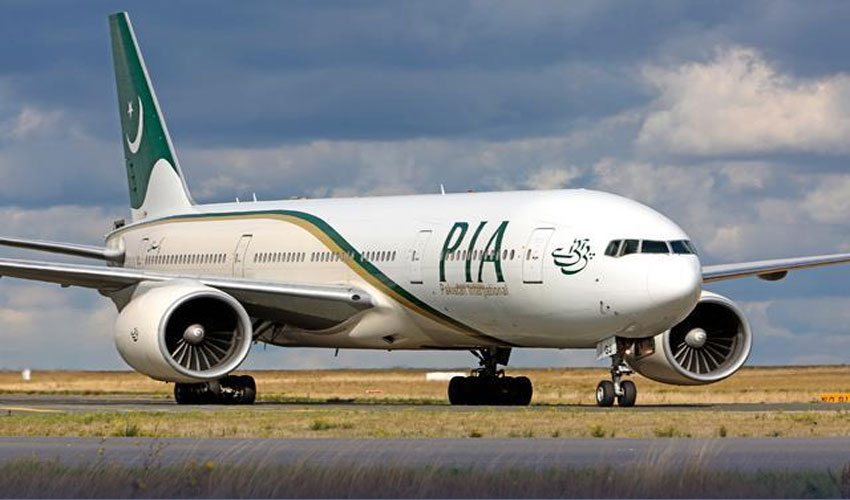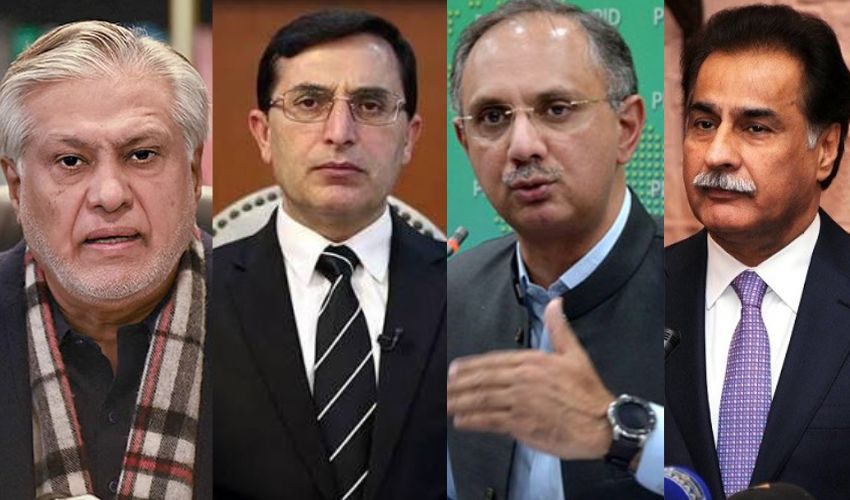Caretaker Prime Minister Anwaar-ul-Haq Kakar delivered a significant address at the 78th session of the United Nations General Assembly (UNGA), touching upon various crucial global issues.
He emphasized the need for the UN Security Council (UNSC) to ensure the implementation of its resolutions on Kashmir, as this is fundamental to establishing peace between Pakistan and India. PM Kakar drew attention to India's failure to implement Security Council resolutions regarding Kashmir, which call for a UN-supervised plebiscite to determine the region's final status.
In his maiden UNGA address, PM Kakar covered a wide range of topics, including cross-border terrorism emanating from Afghanistan, the Palestinian issue, the threat posed by far-right extremist groups like Hindutva-inspired extremists, Islamophobia, global economic challenges arising from COVID-19, conflict, and climate change, as well as Sustainable Development Goals (SDGs) and Pakistan's efforts to address its economic challenges.
PM Kakar highlighted the importance of peace for development and expressed Pakistan's desire for peaceful and productive relations with all its neighbors, including India. He noted the dire situation in Kashmir, with India's prolonged lockdowns, curfews, and restrictions, as well as the incarceration of Kashmiri leaders and human rights abuses.
He also highlighted the global presence of extremist groups, underscoring the threat posed by RSS terrorists to Muslims and Christians, as well as the ongoing attacks on Pakistan by groups like TTP and ISIS originating from Afghanistan.
The prime minister called for strengthened support for the UN Military Observer Group for India and Pakistan (UNMOGIP) and urged global powers to encourage India to accept Pakistan's proposal for mutual restraint on strategic and conventional weapons.
He expressed Pakistan's concern for Afghanistan and its commitment to counterterrorism efforts while advocating for humanitarian assistance and economic revival in Afghanistan. He condemned cross-border terrorist attacks on Pakistan by groups like TTP and Da'esh and highlighted Pakistan's efforts to combat externally-supported terrorism.
Regarding Pakistan's economic recovery, PM Kakar mentioned the establishment of a Special Investment Facilitation Council (SIFC) and the initiation of the second phase of the China-Pakistan Economic Corridor (CPEC) to boost infrastructure and manufacturing projects.
He also called for the implementation of SDGs, the reallocation of unused Special Drawing Rights (SDRs) for development, increased concessional lending by multilateral development banks, and the resolution of debt problems faced by 59 countries in debt distress.
Kakar stressed Pakistan's vulnerability to climate change, citing recent devastating floods, and called for the fulfillment of climate change commitments made at COP28 by developed nations. He emphasized the need to provide over $100 billion in annual climate finance, allocate a significant portion to adaptation in developing countries, and accelerate carbon emission mitigation targets.
The premier welcomed the normalization of Saudi-Iranian relations but expressed dismay over the ongoing Palestinian tragedy. He reiterated support for a two-state solution and the establishment of a viable Palestinian state with East Jerusalem as its capital.
PM Kakar emphasized the importance of countering all forms of terrorism, including threats posed by far-right extremist groups, and called for respecting diversity, religious symbols, and religious sanctity.
Regarding UNSC reform, he advocated for expansion in the non-permanent category with provisions for longer-term seats, rather than additional permanent members, to preserve the Council's credibility and legitimacy.


























